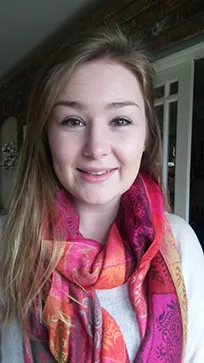Key Info
Bachelor of Science in Nursing (General)
Are you interested in caring for people? Do you have good communication skills, enjoy working as part of a team and have qualities such as kindness and respect? Are you willing to learn, practice your skills and become competent in nursing? If so, general nursing may be the career for you.
Why Study General Nursing at UL?
General nursing is a discipline of nursing practice that involves caring for people with acute and long-term conditions in hospital and community settings. Registered General Nurses (RGNs) work collaboratively and in partnership with patients, their families/carers, the wider community, and other health professionals in providing proactive, evidence-based quality holistic care.The BSc Nursing (General) programme is designed to provide students with the understanding, knowledge, skills and attitudes required to deliver compassionate care that is responsive to the needs of individuals within evolving healthcare settings.
The BSc. Nursing (General) programme is a full-time four-year degree offered by the School of Nursing and Midwifery, the University of Limerick in conjunction with the Health Service Executive West (Limerick, Clare and Tipperary North). On successful completion of the programme, students will be able to present for registration with Nursing and Midwifery Board of Ireland (NMBI) and practise as a Registered General Nurse (R.G.N.).
Nursing programmes at The University of Limerick offer a valuable opportunity to study on a renowned and beautiful campus with enthusiastic and experienced lecturers who support student learning both in practice with our service partners and on campus.
Learn more about our courses and upcoming events
What you will study
The Programme is offered full time over four years. The curriculum encompasses the development of theory and practice simultaneously, with the programme structured as follows:
- 63 weeks Theory (minimum)
- 45 weeks un-rostered Clinical Placement
- 36 weeks Internship
During the course, you will study nursing, caring, communication, health and health promotion, infection prevention and control. Biological sciences, sociology, psychology, law and ethics, pharmacology, research and evidence in health are examples of other modules you will study. This course is full-time 4-year programme and includes practice placements throughout the Mid-West region. As this course leads to an academic and professional qualification, students will need to put time and effort into study.
Nursing is a demanding profession both physically and emotionally. Successful applicants must be of good physical and mental health and have the ability to achieve the required competencies of a nurse. Offers of places on the nursing programmes are subject to satisfactory completion of Garda Vetting & Health Screening, including vaccination. This will be organised by the School of Nursing and Midwifery. Prospective students should be aware that there is likely to be a cost implication borne by the student for health screening and vaccination.
| CODE | SEMESTER 1 | CODE | SEMESTER 2 | |
| NM4131 | Shared Module: Promoting Safety within a Healthcare Context |
CP4171 | Practice Placement 1 | |
| NM4121 | Shared Module: Foundations for Engaged Learning |
NM4092 | Shared Module: Introduction to Health and Health Promotion |
|
| NM4091 | Philosophies Underpinning Person Centred Nursing | NM4181 | Person Centred Medical Nursing | |
| NM4141 | Fundamentals of Nursing Practice | NM4152 | Shared Module: Biological Sciences applied to Nursing & Midwifery 2 |
|
| NM4151 | Shared Module: Biological Sciences applied to Nursing & Midwifery 1 |
PS4062 | Shared Module: Introduction to Psychology applied to Nursing and Midwifery |
|
| NM4161 | Shared Module: Communication and interpersonal Relationships in Nursing & Midwifery |
| CODE | SEMESTER 3 | CODE | SEMESTER 4 | SUMMER |
| CP4172 | Practice Placement 2 | CP4193 | Practice Placement 3 | |
| NM4153 | Person Centred Surgical Nursing | NM4233 | Foundations of Maternal, Child and Mental Health Nursing | |
| NM4163 | Nutrition for Nursing Practice | NM4094 | Older Person Nursing: Value-Based Practice | |
| NM4173 | Shared Module: Biological Sciences applied to Nursing & Midwifery 3 |
NM4243 | Shared Module: Nursing Individuals Living with Long Term Conditions |
|
| NM4183 | Shared Module: Principles of Infection Prevention & Control for Nurses and Midwives |
NM4104 | Shared Module: Law and Ethics for Nursing and Midwifery Practice |
|
| NM4022 | Shared Module: Pharmacology for Nurses and Midwives |
S04014 | Shared Module Sociology of Health and Illness for Nursing and Midwifery |
|
| CP4115 | Practice Placement 4 |
| Year 3 | Semester 5 | Semester 6 | Summer | |
| CP4125 | Practice Placement 5 | NM4076 | Shared Module: Nursing in Primary and Community Settings |
|
| NM4086 | Shared Module: Research and Evidence in Healthcare |
|||
| NM4096 | Person Centred Approaches to Rehabilitation Nursing |
|||
| NM4106 | Principles of Palliative Care | |||
| NM4116 | Shared Module: Transition towards a Competent Practitioner |
| Code | Semester 7 | Code | Semester 8 | Summer |
| CP4126 | Practice Placement 6 | CP4097 | Practice Placement 7 | |
| NM4067 | Shared Module: Practice Research Project |
CP4008 | Practice Placement 8 | |
| NM4077 | Shared Module : Leading and Managing in Quality Practice |
|||
| NM4087 | Person Centred Nursing in Acute Complex Care |
Entry requirements
| CAO points history |
430 †
|
|---|---|
| Minimum grades |
Applicants are required to hold at the time of enrolment the established Leaving Certificate (or an approved equivalent) with a minimum of six subjects which must include: Two H5 (Higher level) grades and Four O6 (Ordinary level) grades or four H7 (Higher Level) grades. Subjects must include Mathematics, Irish or another language, and English. |
| Subject requirements |
In addition, applicants must hold an O6/H7 grade in one of the following Laboratory Science subjects: Biology; Physics, Chemistry; Physics and Chemistry; or Agricultural Science Enquiries about the methods of evaluation of results of examinations and qualifications other than the Republic of Ireland Leaving Certificate Examination should be addressed to the Admissions Office of UL. T: +353-1-639 8500 https://www.nmbi.ie/Home |
| Additional considerations |
QQI EntryCertain QQI Awards are acceptable in fulfilling admission requirements for this programme. Go to the UL Admissions QQI page for a full list of modules. Mature StudentsEntry requirements - Alternative Entry pathways Note: Applicants who wish to be considered for a place on the grounds of mature years must satisfy the Nursing and Midwifery Board of Ireland (NMBI) as to their suitability by means of an assessment test. Mature applicants must apply directly to NMBI to take the assessment test. Mature applicants should be 23 years old on or before January 1st of the year of enrolment. Mature applicants must apply through the Central Applications Office (CAO) by 1 February. Application information for mature student applicants Mature applicants may also be considered on the basis of educational qualifications. Such applicants should also consult the booklet: Nursing and Midwifery A Career for You, published by the Nursing Careers Centre, An Bord Altranais agus Cnáimhseachais na hÉireann Tel +353 (0)1 6398500 | Website http://www.nursingcareers.ie HEAR/DAREFor further information on the Higher Education Access Route – HEAR For further information on the DARE Route- DARE English Language RequirementAssessment of English language competence is a requirement for entry for students whose first language/primary mode of expression is not English. |
| Non-EU Entry Requirements |
|
NOTICE: This course is NOT available for applications from Non-EU Students
How to apply
| Where are you applying from? | How to Apply |
|---|---|
| Ireland | Irish students must apply to UL via the CAO. More information can be found here. |
| The UK | Students who have completed their A-Levels can apply to UL via the CAO. More information can be found on the Academic Registry website. |
| The EU | EU Students can apply to UL via the CAO. More information can be found on the Academic Registry website. |
Fees and funding
NOTICE - This course is not available to Non EU Applicants
Student course fees are broken into three components - Student contribution, Student Levy and Tuition Fees.
A number of illustrative examples of fees for this course based on the current fee levels have been set out in the tables below.
An explanation of the components, how to determine status and the criteria involved is provided below the examples as is a list of possible scholarships and funding available.
EU Students with Free fees status in receipt of a SUSI grant
| HEA pays | Tuition Fees | €4,106 |
| SUSI pays | Student contribution | €3,000 |
| Student pays | Student Levy | €102 |
| Total | €7,208 |
EU Students with Free fees status not in receipt of a grant
| HEA pays | Tuition Fees | €4,106 |
| Student pays | Student contribution | €3,000 |
| Student pays | Student Levy | €102 |
| Total | €7,208 |
Students with EU fee status not in receipt of a grant
| Student pays | Tuition Fees | €4,106 |
| Student pays | Student contribution | €3,000 |
| Student pays | Student Levy | €102 |
| Total | €7,208 |
Non-EU Students
| Student pays | Tuition Fees | €0 |
| Student pays | Student Levy | €102 |
| Total | €102 |
Student course fees are comprised of the following components:
Student Contribution
Annual charge set by the government for all full-time third level students. All students are liable unless they have been approved for a grant by Student Universal Support Ireland (SUSI). Please refer to https://www.studentfinance.ie to determine your eligibility for a grant and for instructions on how to apply. The current student contribution is set at €3000.
Student Levy
All students are liable to pay the Student Levy of €102. Please note the Student Levy is not covered by the SUSI Grant.
Tuition Fees
These are based on Residency, Citizenship, Course requirements.
Review the three groups of criteria to determine your fee status as follows
-
Residency
- You must have been living in an EU/EEA member state or Switzerland for at least 3 of the 5 years before starting your course
-
Citizenship
- You must be a citizen of an EU/EEA member state or Switzerland or have official refugee status
-
Course Requirements
(all must be met)
- You must be a first time full-time undergraduate (Exceptions are provided for students who hold a Level 6 or Level 7 qualification and are progressing to a Level 8 course in the same general area of study).
- You must be undertaking a full-time undergraduate course of at least 2 years' duration
- You cannot be undertaking a repeat year of study at the same level unless evidence of exceptional circumstances eg serious illness is provided (in which case this condition may be waived)
Depending on how you meet these criteria your status will be one of the following -
- Free Fee Status: You satisfy all three categories (1, 2 and 3) and therefore are eligible for the Higher Education Authority’s Free Fees scheme.
- EU Fee Status: You satisfy both the citizenship and residency criteria but fail to satisfy the course requirements and are liable to EU fees.
- Non EU Fee Status: You do not meet either the citizenship or residency criteria and are therefore liable to Non EU fees.
More information about fees can be found on the Finance website
These scholarships are available for this course
| Title | Award | Scholarships Available |
|---|---|---|
| Edith and Leslie Downer Entrance Scholarship | €1,000 | 1 |
| Johnson and Johnson WiSTEM2D Programme |
These scholarships are available for all courses
| Title | Award | Scholarships Available |
|---|---|---|
| All Ireland Scholarships - sponsored by J.P. McManus | €6,750 | 125 |
| Brad Duffy Access Scholarship | €5,000 for one year | 1 |
| Bursary for my Future Scholarship | €2,750 one off payment | 4 |
| Civic Engagement Scholarship | €1500 | 1 |
| Cooperative Education Award | 1 medal per faculty | |
| Elaine Fagan Scholarship | €1,500 | |
| Financial Aid Fund | ||
| Hegarty Family Access Scholarships | €5,000 for one year | 2 |
| Higher Education Grants & VEC Grants | ||
| Irish American Partnership Access Scholarships | €5,000 | 2 |
| Paddy Dooley Rowing Scholarship | €2,500 | |
| Plassey Campus Centre Scholarship Programme | ||
| Provincial GAA Bursaries Scheme | €750 | |
| Stuart Mangan Scholarship | ||
| The Michael Hillery and Jacinta O’Brien Athletics Scholarship | Various benefits equating to over €7,000 in value | |
| UL Sports Scholarships | Varies depending on level of Scholarship | Multiple |
Your future career
Employability skills from this degree
- Flexibility
- Adaptability
- Empathy
- Organisational skills and time-management
- Leadership
- Determination and tenacity
- Conducting research
- Utilising research and evidence-based practice
- Problem-solving and decision-making
- Collaboration
- Working in partnership with different disciplines
- Teamwork
- Compassion
- Professional responsibility and accountability
Further Study Options
- BSc in Medicine & Surgery
- MSc Nursing
- MSc Nursing (Peri-Operative)
- MSc Nursing (Palliative Care)
- MSc Nursing (Older Person)
- MSc Nursing (Dementia Care)
- MSc Nursing (Respiratory Care)
- MSc infection Prevention and Control Leadership
- MSc Advanced Practice (Nursing)
- Postgraduate Certificate Advanced Practice (Nursing)
Job titles for graduates with this degree
Upon registration with NMBI, there are many different employment and career opportunities available to you. Nurses can work and/or specialise in e.g. medical or surgical nursing, care of the older person, renal nursing, oncology, theatre, palliative care, cardiac, orthopaedics, respiratory, emergency nursing or critical care. Many nurses work as community nurses and general practice nurses.
Other career options include midwifery, children's nursing, public health nursing, education or management. Registered General Nurses may progress their careers through advanced nursing studies, thus enabling them to assume roles, as clinical nurse specialists, and advanced nurse practitioners.
Recent graduates of this programme are working as Registered General Nurses in hospitals, in the community, and in the private sector in Ireland, The EU and outside the EU.
Student Profiles

Laura Griffin
Living in Limerick, UL is a campus I have grown up around and loved throughout my childhood. The nursing course is also highly attractive here as we have the new Health Sciences building and our placement scheme is second to none as we are surrounded by the UL Hospitals group.
Nursing itself is something I became interested in because of its focus on people. I also love that there is always more to learn. I have found the modules on anatomy and genetics really interesting as biology was a favorite subject of mine in secondary school. I have also been awarded the Downer Nursing Scholarship which is a huge honour.
The high level of active learning through placement is another element of the course that grabbed my attention since, for me, actually doing something is the best way to learn. During my 1st semester I went on a 4-week nursing placement to the University Hospital Limerick. I had the chance to put into practice everything I had learned thus far in my studies.
By the end of my time there, skills like taking a patient’s vital signs became simple and routine to me which really made me feel like part of the nursing team. Actually being in the hospital setting so early on in my degree gave me great confidence in the fact that nursing is definitely the career for me! I feel comfortable and prepared going forward in my studies knowing that the nursing setting is where I want to be.
Tanya Byrnes
I chose UL after coming down here to the open days and seeing the fantastic campus. I’m from Wexford and when I arrived I didn’t know very many people here but I have to say that I settled right in.
I have always wanted to be a nurse and the course provided here in UL is excellent. Our semester is split between working in the hospital and time in college. Our lecturers are all nurses themselves and all have experience of working in hospitals which makes their lectures more interesting when they talk about their hands on experiences.


Sarah Moore
I chose UL after coming down here to the open days and seeing the fantastic campus. I’m from Wexford and when I arrived I didn’t know very many people here but I have to say that I settled right in.
I have always wanted to be a nurse and the course provided here in UL is excellent. Our semester is split between working in the hospital and time in college. Our lecturers are all nurses themselves and all have experience of working in hospitals which makes their lectures more interesting when they talk about their hands on experiences.
